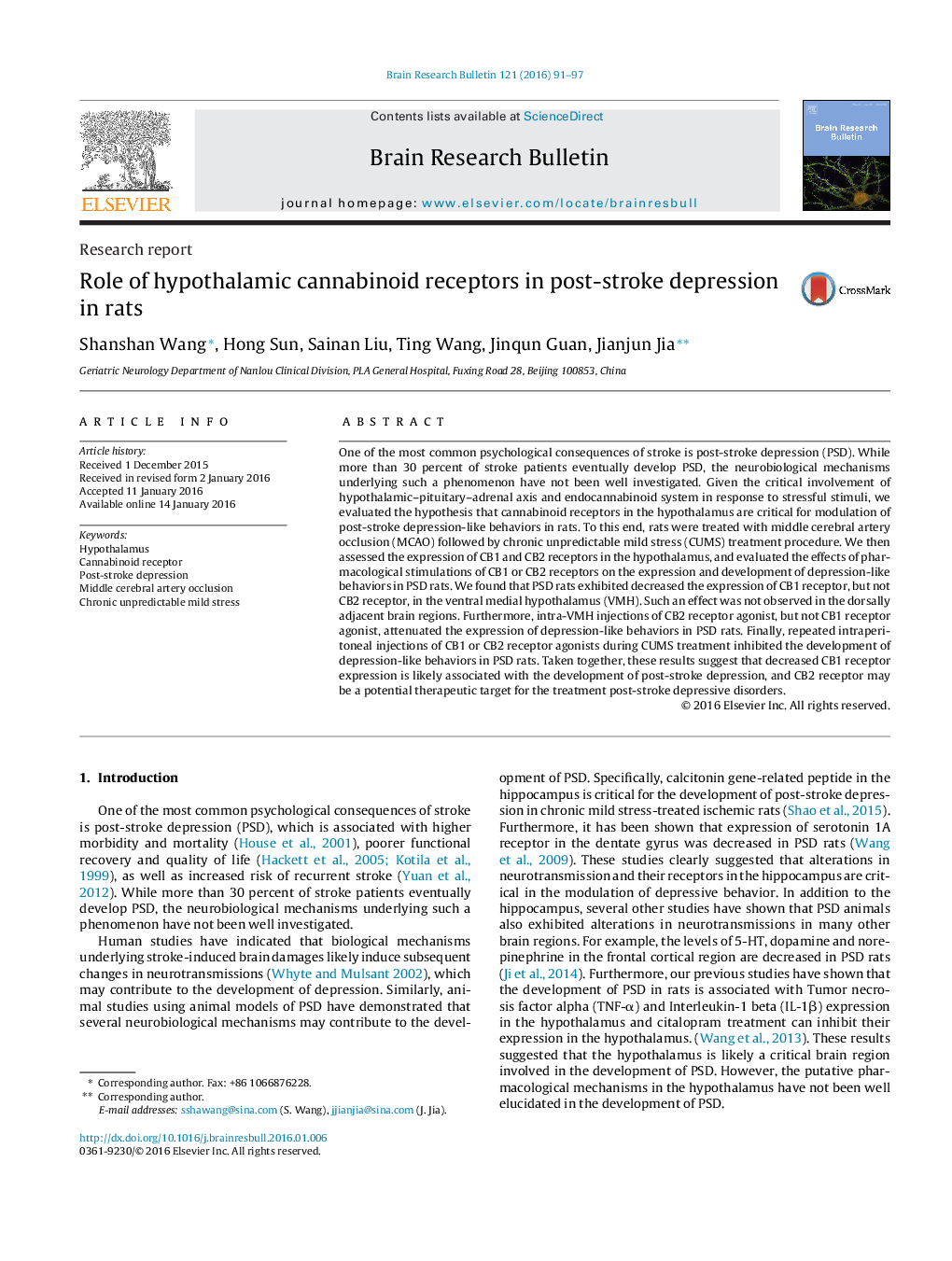| کد مقاله | کد نشریه | سال انتشار | مقاله انگلیسی | نسخه تمام متن |
|---|---|---|---|---|
| 4318648 | 1613235 | 2016 | 7 صفحه PDF | دانلود رایگان |
• CB1 receptor expression was reduced in post-stroke depression rats.
• Hypothalamic CB2 receptor stimulation has antidepressant effects
• CB1 or CB2 receptor stimulation prevents post-stroke depression.
One of the most common psychological consequences of stroke is post-stroke depression (PSD). While more than 30 percent of stroke patients eventually develop PSD, the neurobiological mechanisms underlying such a phenomenon have not been well investigated. Given the critical involvement of hypothalamic–pituitary–adrenal axis and endocannabinoid system in response to stressful stimuli, we evaluated the hypothesis that cannabinoid receptors in the hypothalamus are critical for modulation of post-stroke depression-like behaviors in rats. To this end, rats were treated with middle cerebral artery occlusion (MCAO) followed by chronic unpredictable mild stress (CUMS) treatment procedure. We then assessed the expression of CB1 and CB2 receptors in the hypothalamus, and evaluated the effects of pharmacological stimulations of CB1 or CB2 receptors on the expression and development of depression-like behaviors in PSD rats. We found that PSD rats exhibited decreased the expression of CB1 receptor, but not CB2 receptor, in the ventral medial hypothalamus (VMH). Such an effect was not observed in the dorsally adjacent brain regions. Furthermore, intra-VMH injections of CB2 receptor agonist, but not CB1 receptor agonist, attenuated the expression of depression-like behaviors in PSD rats. Finally, repeated intraperitoneal injections of CB1 or CB2 receptor agonists during CUMS treatment inhibited the development of depression-like behaviors in PSD rats. Taken together, these results suggest that decreased CB1 receptor expression is likely associated with the development of post-stroke depression, and CB2 receptor may be a potential therapeutic target for the treatment post-stroke depressive disorders.
Journal: Brain Research Bulletin - Volume 121, March 2016, Pages 91–97
